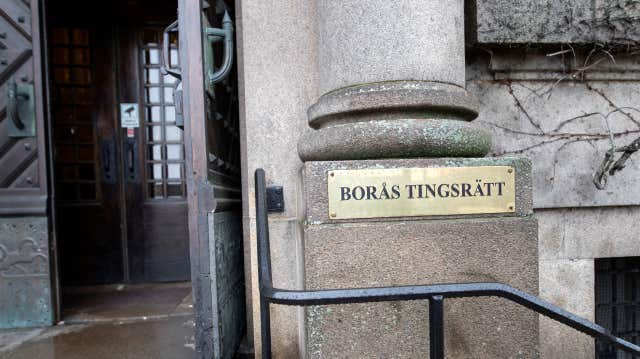Alma better after treatment in China
Three-year-old Alma was diagnosed with the fatal disease MLD.
When she was denied gene therapy in Sweden, the family traveled to China where she was treated.
Alma has now gotten better – but the family is frustrated by the time that was lost.
“If she had received the treatment here, in connection with her diagnosis, she would have clearly been in much better condition,” says Alma’s father Juan Macall.
At home in Karlstad, Alma Macall practices walking with her mother Maria and father Juan.
– She has never lifted her legs as much as she does now. If there are continued improvements, we will try a walker to motivate her to walk more, says Juan.
A year has passed since Expressen first reported on Alma. She was then two years old and had just been diagnosed with metachromatic leukodystrophy, MLD.
The disease causes the brain substance to atrophy. Affected children lose more and more body functions. Eventually they are deaf and blind and have no voluntary movements. Most die within five years of the first symptoms.
However, a treatment has been available for a few years now: the gene therapy Libmeldy. The cost is 30 million kronor, making Libmeldy Sweden’s most expensive approved drug.
Denied treatment in Sweden
In Sweden, Libmeldy is recommended for patients with late infantile MLD, which Alma has – if they have not yet developed any symptoms. Because Alma could not walk at the age of two, the MLD treatment council refused to treat her.
Erik Eklund, chief physician at Skåne University Hospital, which is the Nordic center for Libmeldy treatment, wrote in an email to Expressen:
“It’s not a question of cost, but unfortunately the nature of the treatment. In studies, children with mild symptoms with this severe form have been treated and the disease has still progressed and they have passed away.”
“It’s not a cost issue, but unfortunately the nature of the treatment. In studies, children with mild symptoms with this severe form have been treated and the disease has still progressed and they have passed away.”
But the family didn’t give up. Thanks to a great deal of local commitment, they managed to raise the approximately 2.5 million kronor needed to travel to China, where Alma received a treatment similar to Libmeldy in the fall.
In China, the treatment is considered to be able to help even late-infantile MLD patients with symptoms, if they have not entered a phase of rapid deterioration. And Alma had not.
– The Chinese told us that Alma was in such good condition that they didn’t understand why they denied her treatment in Sweden, says Juan.
The Turnaround
Before Christmas the family came home.
– Sometime in February, March, we noticed that things were starting to get better. The improvements give us hope that we have probably saved Alma’s life, says Juan.
The medical record shows that she is stronger in her torso, arms and legs, has improved motor skills, has developed cognitively and is cooperating more with the healthcare staff.
MLD is caused by a deficiency of the enzyme arylsulfatase A. Alma has good levels of the enzyme in her blood, well above the reference values. An MRI shows that her brain is moderately affected by the disease.
For Maria and Juan, however, it is frustrating to think about the five months that passed before she was treated.
– If she had received the treatment here, in connection with her diagnosis, she would have clearly been in much better condition, says Juan.
The family now hopes that Alma’s positive development will lead to the MLD treatment council considering changing the recommendation so that even children with late-infantile MLD and mild symptoms can receive Libmeldy.
– You might need to test it on more symptomatic children to know where to draw the line, says Juan.
Expressen has contacted chief physician Erik Eklund and the treatment council for MLD.





